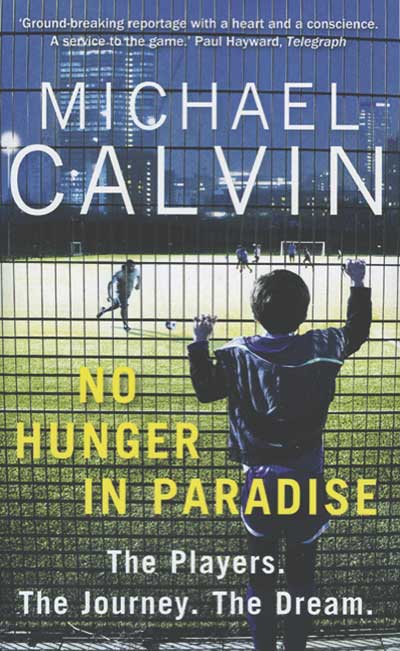
Century, £16.99
Reviewed by Adam Powley
From WSC 364, June 2017
Buy the book
There’s a moment of levity in this, the completion of Michael Calvin’s masterful trilogy, when he mocks the love of three-letter acronyms for coaching programmes. “WTF” is the author’s response. Many will share the sentiment reading the stories related in this book.
Calvin’s previous studies investigated scouting (The Nowhere Men) and management (Living On The Volcano). Here, his name gets top billing in large font on the cover – bigger and bolder than for the other instalments, and a reflection of the authority he carries.
His focus is on aspiring players, and the coaches, parents, academy directors, agents and assorted intermediaries seeking to steer the youngsters towards their goals and away from more likely failure. It’s a journey across the landscape of youth football, from unusable grassroots pitches and parents tempted by untold riches, to Manchester City’s faintly sinister training mega-complex and the highest echelons of the game. Brilliantly sourced and written, it reveals the occasionally inspiring, but frequently doomed, struggles of the hopefuls to forge a meaningful career.
It is often dispiriting stuff. If you think talent will out and progression is meritocratic, be prepared for a series of unfair setbacks in a scandalously unregulated industry. This is sport as a ruthless, chaotic business, plagued by competing interests, bullying, cronyism and the subtle corruption of mutual favours. It becomes clear that to make it as a professional, it’s often less about what you can do and more to do with timing and, inevitably, who you know.
A thread running through the book is the disregard for the wellbeing of children. Kids as young as four are sucked into an insular system, fought over by voracious agents, and then just as quickly chucked aside when it becomes clear that they haven’t got what it takes, whatever “it” might be. Teenagers trying to escape testing inner-city environments are bandied around between clubs, leading a peripatetic existence that works against secure futures.
There are plenty of Calvin’s interviewees who are striving to do the right thing, particularly those who see their mission as not just to produce footballers, but well-rounded young men. Admirably good work is being done at a number of clubs, youth groups and local training centres. Positives are manifested in the progress and application of the likes of James Ward-Prowse and Nathan Redmond, while English football’s latest saviour, Gareth Southgate, emerges with credit.
But there is a looming sense that the nicer guys are fighting an unequal battle: the system is so ruthless and fixated on short-term financial gain that Calvin’s headline figure – only 0.012 per cent out of 1.5 million boys playing organised football make it into the pro ranks – seems, perversely, almost too high. Calvin notes: “There are positive, forward-thinking people… but English football is defined by its predilection for trench warfare.” One battle-scarred veteran, Dave Parnaby, Middlesbrough’s outgoing academy director, sums up the conflict: “Great game, shit industry.”
By the end of his journey Calvin offers solutions for meaningful change and retains some of the sense of dreamy hope with which kids begin their own footballing odyssey. As a portrait of the state of the modern game, No Hunger In Paradise is vital reading. With Calvin’s previous studies, it serves as a record of what football is like today and should place him alongside Arthur Hopcraft, John Moynihan and Hunter Davies in providing the sport with its defining literature.